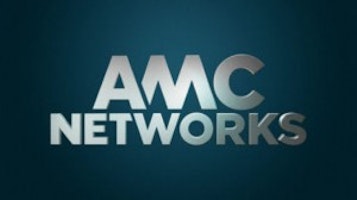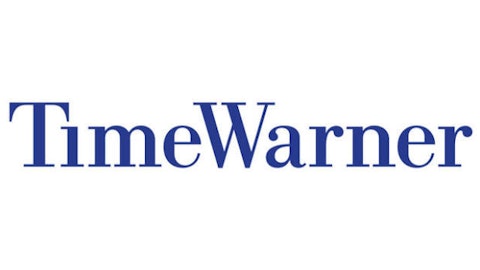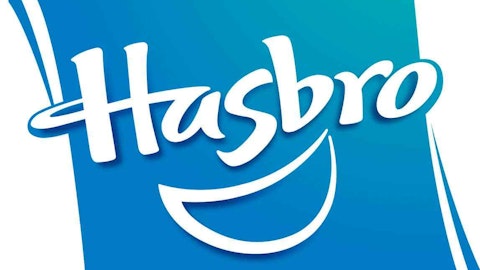Throughout the last decade, there have been attempts at an a la carte cable television pricing model that would keep subscription costs down and allow consumers to select and pay for only the channels they watch and use. Senator John McCain took one further step on the path to a la carte subscriptions by introducing the Television Consumer Freedom Act in Congress. The introduction of the bill should worry shareholders of several media companies.

Cable fee leader
Perhaps no company would be hit harder by an a la carte subscription service than current leader ESPN, from parent company The Walt Disney Company (NYSE:DIS). ESPN, the most watched sports network in the world, commands north of $5 per subscriber. This is currently the highest non-premium channel fee. To make matters worse for customers, ESPN typically bundles its other networks (ESPN2, ESPNU, ESPN Classic) to subscribers, forcing them to pay for all of the channels. McCain also singled out two The Walt Disney Company (NYSE:DIS) assets in ESPN and ABC as media bullies who bundle channels.
The Walt Disney Company (NYSE:DIS) investors should be happy with the current cable system. In fiscal 2012, the company’s media segment made up $19.4 billion in revenue. This was the largest segment and made up close to half of the company’s total revenue ($42.2 billion). The segment also contributed the highest percentage of operating income ($6.6 billion), and made up more than double all of the other segments combined ($3.3 billion).
Despite being the potential biggest loser, I wouldn’t be worried if I owned The Walt Disney Company (NYSE:DIS) stock. With a portfolio that includes media, movies, theme parks, and video games, the company can push out revenue from other sectors. The company’s key assets of Marvel and Star Wars could also lead to higher subscription fees for channels it owns. The demand for ESPN will still be around in an a la carte mode.
Smaller media company
One small media company could see a negative impact from the McCain bill. Discovery Communications Inc. (NASDAQ:DISCA)
provides customers with Discovery Communications Inc. (NASDAQ:DISCA) Channel, TLV, Animal Planet, and others. The company also has joint ventures for the HUB channel and Oprah Winfrey Network. In the first quarter, the company saw revenue increase 7%. This was led by a company record in domestic viewership and increasing international revenue. Distribution revenue made up $308 million of the first quarter’s total $686 million. This is a company that counts on fees for its channels to operate its business. However, with strong viewing presences among males (Discovery Communications Inc. (NASDAQ:DISCA) Channel), women (TLC, Oprah Winfrey Network), and kids (HUB), Discovery Communications Inc. (NASDAQ:DISCA) should be safe in a la carte subscription.
The possible winner
While I see most cable networks seeing a bit of a drop in revenue due to the new mode, there is one potential winner. Cable media company AMC Networks Inc (NASDAQ:AMCX)
owns the most popular television show at the moment in “The Walking Dead.” Considering that AMC Networks Inc (NASDAQ:AMCX) only gets $0.29 per subscriber for its channel, the company would likely charge much more for its current highly demanded channel in the future.
The downfall to AMC Networks Inc (NASDAQ:AMCX) in an a la carte subscription model is its other channels. The company owns AMC Networks Inc (NASDAQ:AMCX), IFC, Sundance Channel, and WEtv. AMC Networks Inc (NASDAQ:AMCX) is the fourteenth most watched cable channel. IFC, WEtv, and Sundance Channel all fail to crack the top 35 most watched cable networks. AMC bundles its channels together and therefore gains the additional revenue from the seldom watched networks.
AMC Networks Inc (NASDAQ:AMCX) has already caught on to cable companies possibly not paying up for its other channels. The company earlier
threatened to move
“The Walking Dead” to a different channel to increase advertising and subscription revenue outside of its namesake brand. AMC investors shouldn’t be worried about this bill, as its top network is underpaid compared to peers like FX ($0.51) and USA ($0.64).
Can the system work?
As a cable subscriber, I don’t enjoy paying for all the channels that I don’t want. However, I do appreciate the luxury of being able to find something to watch or be introduced to a new sport or show by having other channels. I don’t think this bill will pass through Congress and think investors should be less worried about it than Wall Street fears.
The biggest problem I see with the new channel service would be people adding channels for short periods of time and then dropping them. This would cause fees to rise as subscription rates would go through drastic changes. Recent examples of channels that saw huge one time spikes were: Oprah Winfrey Network (Lance Armstrong interview) and Discovery Communications Inc. (NASDAQ:DISCA) Channel (Nik Wallenda’s walk). What would hotel rooms or apartment complexes that provide cable for customers do with the new service? Would men never be able to watch a sporting event in a hotel room or at a girlfriend’s house if ESPN wasn’t included in their plans?
Don’t panic the a la carte subscription mode just yet. These companies listed above are great investments going forward. Each would be hurt by a new subscription model, but I think the risk is too low to be worried at the moment.
Chris Katje has no position in any stocks mentioned. The Motley Fool recommends AMC Networks and Walt Disney (NYSE:DIS). The Motley Fool owns shares of Walt Disney. Chris is a member of The Motley Fool Blog Network — entries represent the personal opinion of the blogger and are not formally edited.
The article The New Television Bill Could Impact These Stocks originally appeared on Fool.com is written by Chris Katje.
Copyright © 1995 – 2013 The Motley Fool, LLC. All rights reserved. The Motley Fool has a disclosure policy.



